by Mayumi-H | Jun 12, 2013 | Persona 4 Fan Fiction, Process
This past Monday, I had another photo shoot with my photographer, Celeste Giuliano. It marked the thirteenth photo setup I’ve done with Celeste, since 2007. Of course, it being the thirteenth shoot, we were cursed with a few difficulties (late trains, blown lights, and rain!), but I had an amazing time, as I always do.
I first started these photo shoots as a way to feel better about myself. I’ve never considered myself a Gorgon, but, I’d started to feel plain, unnoticed. Kind of worthless, actually. Especially when I looked around and saw all these beautiful others, who weren’t me.

By Italiamoderna at it.wikipedia [Public domain], from Wikimedia Commons
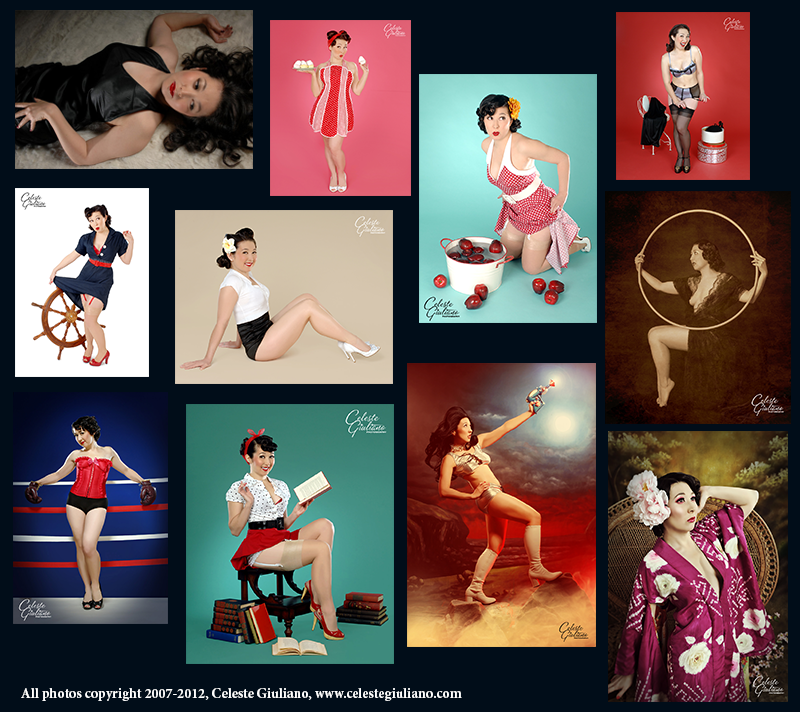 As well as being inspired to do these photo shoots, they also inspire me. For days, even weeks, after a shoot, whenever I look into a mirror, I remember how empowered it feels to be proud of who I am. I don’t see the flaws in myself, but what makes me beautiful. I try to remember those feelings when I look at my work, too.
As well as being inspired to do these photo shoots, they also inspire me. For days, even weeks, after a shoot, whenever I look into a mirror, I remember how empowered it feels to be proud of who I am. I don’t see the flaws in myself, but what makes me beautiful. I try to remember those feelings when I look at my work, too.
When we review scenes, chapters, or whole stories for editing, we often focus on the imperfections. That’s not a criticism of editing and revision; it’s important for us to note where our stories can be stronger, what we can change to make them better. But, sometimes, in seeing all those imperfections, we can lose sight of what’s beautiful.
Never forget the essence of your story. It may not be as handsome, as charming, as strong, or as popular as the one you saw while strolling through the aisles of your book shop. But it’s got its own beauty. Nurture that. If you do, you’ll feel – like I did, after my latest photo shoot – like you’re fifty feet tall.
by Mayumi-H | May 22, 2013 | Persona 4 Fan Fiction, Process, Short Stories
A few weeks ago, I wrote about a particular Free Write Friday picture prompt (Free Write Fridays from Kellie Elmore). What came from that free write session was about 1600 words of a relationship story, one that flowed so naturally from my fingers, I just couldn’t stop writing it. As I mentioned in that earlier post, what struck me as I wrote those characters was how much of a role their religion played in their dialogue. Their sexuality also featured prominently, which is one of the main reasons why I didn’t post the piece at the time. Because you never know who you might offend.
Generally speaking, offending potential readers is not something I care very much about. It’s my belief an artist should create Art that speaks from the soul, no matter how dark, bright, raunchy, or chaste. Whether the artist can then sell that creation if they so choose is an entirely different debate. But, the Art at its core should be honest. Otherwise, it’s not so much art or even craft, but simply a consumable.
Side note: I’m not saying there’s anything inherently wrong with producing for consumption. Nor am I saying consumables necessarily exclude artistry, or vice versa. I think A Song of Ice and Fire has proven that pretty well. Besides, every one needs to eat, no matter how high-falutin’ their principles.
That said, I recently revisited that piece of free writing because I was curious to look at it with fresh eyes. I wanted to see if it really was as bad as I’d originally thought. Holding a marker, I went over and redacted everything I thought anyone could possibly find offensive in any way. This is what came of that exercise:
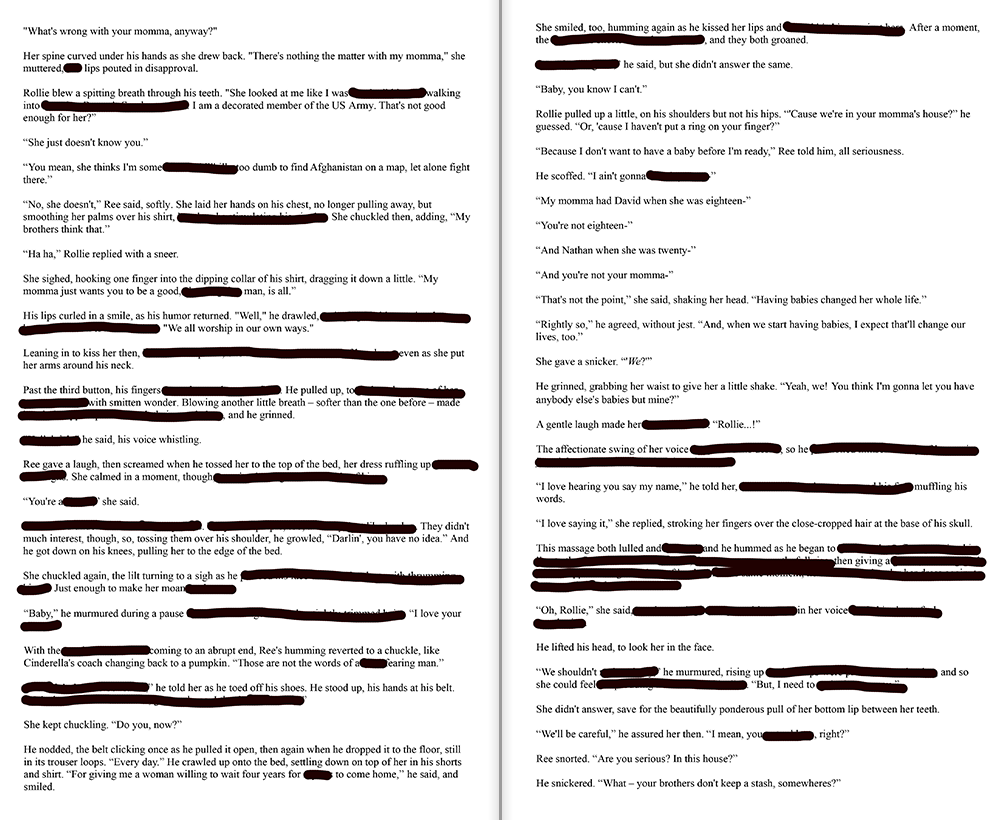
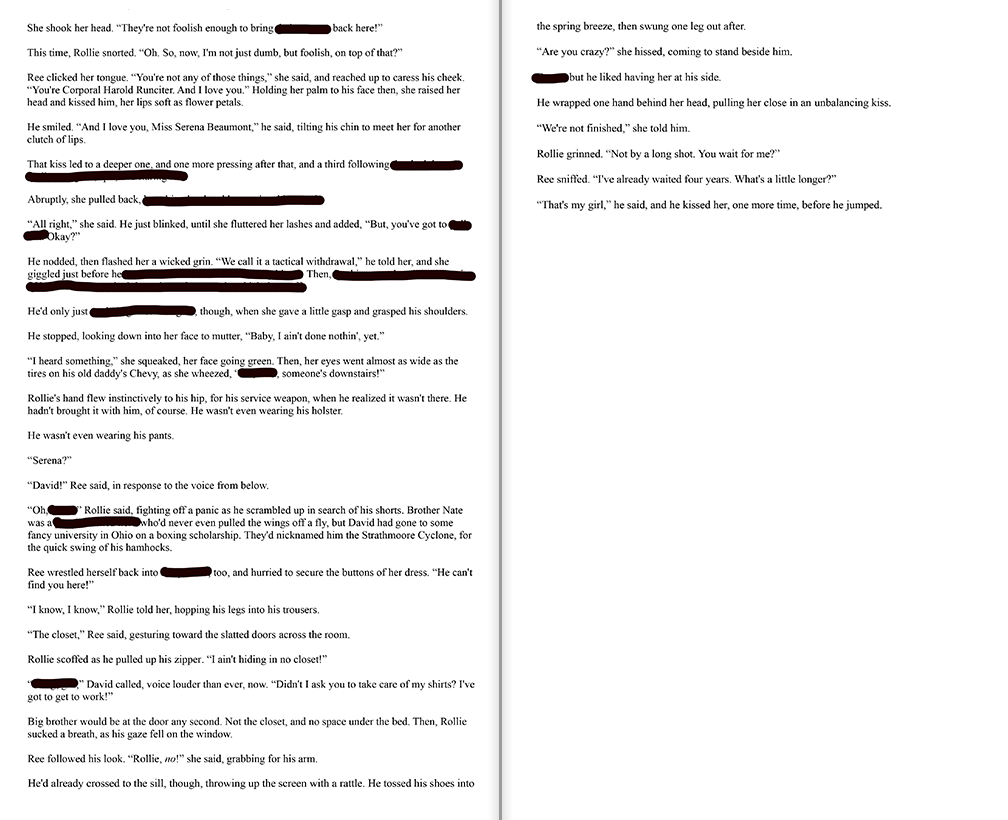
If, for some reason, you’re interested in the actual words, click the images for a more legible experience (they’ll open in a new window or tab). The scene itself isn’t important, though. The reason for this exercise – aside from fueling my own personal amusement – was for me to see just how much black there’d be on those pages.
I’m not particularly smart, so I can’t write good mysteries or thrillers. I’ve only ever held a gun once, and never in a conflict, so I’m not qualified to write a big war epic. But, I understand people, and the everyday conflicts that can arise from personality and heritage clashes. I know love, too, because I experience it in my life every day. And I like sex, because…well, who doesn’t?
I don’t pull many punches when it comes to my stories. I try my best to warn folks ahead of time if a story contains questionable or mature material, but I also believe any individual should be able to decide for themselves if they want to continue or not. But, I’m writing these for me, first, and those topics are the ones I personally enjoy exploring. If they need to be redacted later, to fit someone else’s idea of what’s appropriate or salable, well, that’s life.
Have you ever redacted or edited something you’d written to fit someone else’s sensitivities? Why did you do it? Or, if you didn’t do it, why not?
by Mayumi-H | Apr 17, 2013 | Persona 4 Fan Fiction, Process
Last Friday’s Free Write Friday prompt from Kellie Elmore was the below photo:
What struck me about the photo was not so much the twister itself or the girl in the foreground, but the way people’s lives can often feel like they’re caught in a storm. And, how lonely that girl’s silhouette is. From nowhere – truly, nowhere, as I am, at the moment, working on three very different stories with nothing to do with the prompt – a scene popped into my head, bright as a bolt of lightning: a young man and young woman hiding together, to be together. It was very conversational but still mostly descriptive of their clandestine affair, which is why I chose not to submit it to the prompt.
The odd part about this story snippet was not the flash of inspiring imagery, or the way these characters felt like familiar ones to me, or even the main conflict fashioned by my brain for why the two of them should meet in secret. Rather, it was the smaller conflict of their histories. Specifically, how religion related to their interaction.
If you think violence or sex are hot-button issues, they’re nothing compared to religion. I don’t even feel very comfortable talking about it, here, because… I don’t know. Because I’m scared, I guess.
Not many readers take issue with crime or violence in stories. It’s part of real life, after all. Sex is a slightly touchier subject, probably because it’s associated with prurience or deviance (which is not always the case, but I think I’ve belabored that point already). Faith, though, is unique to each individual person. Nonetheless, it often feels like we’re treated only to religious extremes, in fiction: fanatics like Margaret White (the mom in Stephen King’s Carrie) or the Republic of Gilead in Margaret Atwood’s The Handmaid’s Tale. Given such examples, it’s hardly a wonder that religion often does not play a role in many stories, at least, not a prominent one.
So, why did I take a religious angle for that scene? Mostly, it came from the dialogue. Evidence of their faith sprang, fully formed, from these characters’ mouths. They didn’t preach to me or to each other. They simply were who they were: a mid-western society girl and her working-class, ex-Army boyfriend. Not even their different racial backgrounds featured so prominently in their characterizations as their religious upbringing.
It was weird. Because my own faith is very personal, and I’d never inject those feelings into a story. Not consciously, any way. Sure, religion has had its part. I’ve examined Shinto, but only for the burial rituals and a wedding ceremony; two of my earlier protagonists were Catholic versus Protestant just for a few low-level jabs; I’ve looked at Anglicanism in a broader sense from a social perspective, mostly to counterbalance the dourness of one of my scientific empiricists. But having characters mouth off to each other about church and faith? That was new.

Shrine to World Religions, by Helen (Flickr: Shrine To World Religions) [CC-BY-2.0], via Wikimedia Commons
Have you ever had your characters take you by surprise, about their personal agendas or perspectives?
by Mayumi-H | Apr 3, 2013 | Persona 4 Fan Fiction, Uncategorized
I’m a terrible blogger.
In the last several months, I’ve been nominated for some very sweet awards, and it’s taken me forever to post them! Here they are:
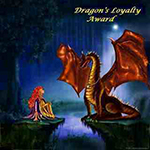
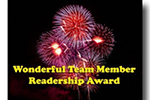
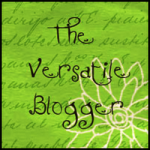
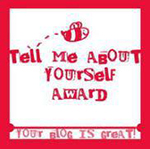

I was nominated for these awards by:
- JM McDowell (Dragon’s Loyalty Award), who runs http://jmmcdowell.com/, a blog filled with good humor, advice, and original stories about her archaeologist mystery-cracker, Meghan Bode;
- Jenny the Wren (Liebster Award), who writes up all kinds of different musings, reviews, and personal stories of life and new-mommyhood over at http://itsjennythewren.wordpress.com/;
- Subhan Zein (Versatile Blogger and Tell Me About Yourself Awards), the talented and soulful writer of short stories, poetic observations, and freedom from the mundane at http://subhanzein.wordpress.com/;
- Summer (Wonderful Readership Award), whose inner peace and graciousness always shine through on her blog, http://summer4soul.wordpress.com/.
Some of these awards come with rules for posting: nominate so many bloggers, tell so many facts about yourself, don’t stop the giving chain. Normally, I’m one to adhere to rules. But, for the purpose of blogging awards, I usually let those rules go.

“The rules are, there ain’t no rules!”
But, for those of you interested, some “facts” about me:
- I like saying I’m an artist, but, really, I’m a jock. I have to exercise every day, or I don’t feel like myself. At school, I competed in Track and Field; the 100-meter dash was my main event, and I anchored our team for the 400-meter relay. I love swimming, and surfing is a relatively new passion. Aside from the sprints, I’m not a great runner, though I often find it centers me. When I’m feeling troubled, there’s not much that can’t be cured by a good, sweaty run!
- I’m Miss Middle-of-the-Road. Maybe it comes from being a Libra, but I’ve always had to look at both sides of a situation. Sometimes, that’s helpful, like when I have to mediate an argument between family or friends. Other times, not so much, as it can cause me to vacillate too long, and opportunities can pass me by!
- I’m not the brightest bulb…but I’m not the dimmest, either. Sports are, by their very nature, competitive, and that competitiveness found its way into other parts of my life. I was always comparing myself to other people: their strengths, their successes, the accolades and adulation. But, for every winner, there has to be a loser. It took a long time for me to understand that losing gracefully can be just as worthwhile as winning graciously. A good thing, since winning is so rare!
- I play favorites. Not among my family (my sister), or for my girls (the older one), but with my characters. Whoever is foremost in my story-writing brain naturally gets privileged child status, of course, but I’ll always have my perennial favorites, too, especially in my fan works.
- Speaking of fan works, there’s nothing wrong with writing what you want, whatever that may be. Fan fiction, open poetry, stream of consciousness diary, historical biography, children’s, drama, sci-fi, horror, terror, thriller, romance, research, religion, comics, smut, slice of life, short fiction, long fiction – it’s all good. Certainly, some of those genres relate more easily to publishing, but always write first for your own passion.
- Lastly, I can only be myself, just like you can only be yourself. Every person has their own conflicts, their own burdens, their own triumphs. The world is a big place; we only ever see a sliver of it. But, just because we don’t see it, doesn’t mean it isn’t there. So, be excellent to each other.
[youtube http://www.youtube.com/watch?v=J7532GXPnO8]
Would you like to pick up one of the above awards? Please, feel free to grab the icon!
If you’re looking for some great bloggers to follow, I advocate the talented ladies and gent above – JM McDowell, Jenny the Wren, Subhan Zein, and Summer – as well as some other blogs and bloggers I always make certain to keep up with:
Many thanks go out to everyone who’s ever followed, liked, or commented on my words and musings.
Happy blogging, everyone!
by Mayumi-H | Feb 13, 2013 | Fearless, Persona 4 Fan Fiction, Process
I was going to put up a post about how to give good (amateur) critique, but I decided to go a different direction, because I saw this come up in my hit statistics…again:
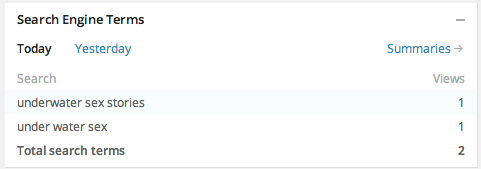
Am I really this predictable?
For those of you who are sensitive to the subject of sex, you may want to steer clear of this post and come back on Saturday, when I’ll post some original fiction. For those of you brave enough to continue, though, let’s get wet!
“So…did you?” Niall asked, and Ross blinked.
“Did I what?”
“Have a bang on the beach last night,” Niall said, and gave a distasteful waggle of his tongue.
Ross scowled. “Sex on a beach is tacky,” he said, which was true…not to mention, sand had a tendency to get everywhere, which also made it damn uncomfortable.
Every good romance has some naughtiness to it, whether it’s of the fade-to-black kind or the in-your-face variety. I’ve written both, and I’m of the opinion that each version has its merits…and demerits. No matter how you choose to write your raunch, though, there are a few practicalities to keep in mind:
1.) Sex on a beach is tacky.

It’s an orgasm metaphor.
Let me save you the trouble: having saltwater shoot up your nose while you’re snogging your lover is not a pleasant feeling, no matter how locked your lips are. We’re not even going to talk about how crashing water will make a swimsuit move all over the place, creating uncomfortable ripples and folds more likely to cause laughter than lust, or how sand does, in fact, have a tendency to get everywhere. Even a wetsuit won’t keep that pesky stuff off your skin. Which is why you should always rinse off before you hit the sheets for a post-surf romp, unless you want to be cleaning sand out of your bed for weeks.
A beach can be a romantic place for a tryst, to be certain. Just be certain to remember what else is on a beach, too.
2.) Water is not the same as lube.
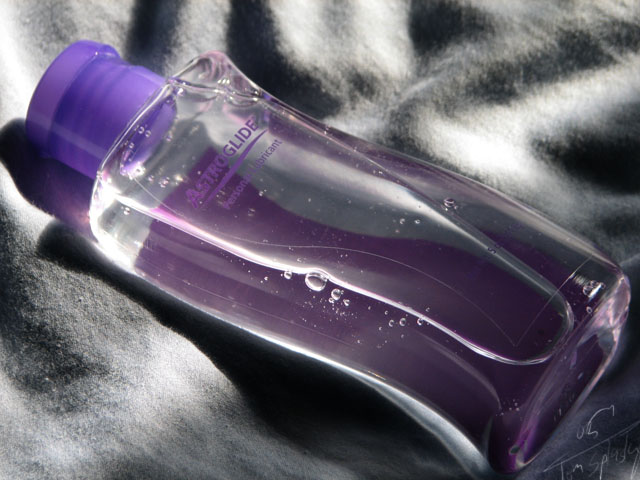
“Come on in! The temperature’s fine!”
But, when it comes to sex, be aware of the surroundings, especially if it’s water. We’ve all heard the story that you can drown in even a puddle of water, but water can also counteract the benefits of personal lube. The human body produces its own lubricant, which is designed to smooth out the sometimes-rough mechanics of sex. Water, on the other hand, being the excellent cleaner it is, has a tendency to wash away that lubricant.
Yikes.
So, next time you think about putting that steamy sex scene in a steamy shower, keep in mind the details of such a situation. And that’s not even mentioning the aforementioned issue of rushing water in the face and up the nose….
3.) You’d never mistake a pool for a condom.
A swimming pool offers all the joy and excitement of a midnight skinny-dip without the associated danger of salt poisoning and night feeders.

The dating scene is full of sharks of all kinds….
Which brings me to my last point:
4.) Lovemaking can be lovely, any place.
Don’t let me discourage you, or your characters. On the beach, underwater, in a pool, even in the rain: sex between two people brought together by love can be beautiful, in any location and under any circumstance, so long as you make it so. Even in the typical locale of a shared bed, sex can be thrilling, romantic, ecstatic, funny, relaxing, fulfilling…all this and more. It’s truly about what your characters – and your readers – feel from that love that’s important.
Just remember to think before you put them in a wet situation. 😉
Have you ever written a watery sex scene? Would you ever write one? Why, or why not?
by Mayumi-H | Feb 6, 2013 | Persona 4 Fan Fiction, Process
I think all of us writers write for joy: we’re driven to create worlds with words, just as painters create with their palettes and brushes. But, some of us are looking to push further with our words, to reach a greater audience. We want that valuable place on someone’s bookshelf (or a tab in their e-reader).
There are many, many stages to becoming a published writer. First, you’ve got to have a story. You write, you edit, you tweak. You set it aside, write something else, come back again. You send out copies to betas. You find a critique partner. You get yourself a story editor and a copy editor (maybe they’re one and the same, maybe not). You tap the brain of your old journalism buddy to help you write a tagline. You treat your friend in advertising for help with your sales pitch. You scour the Internet for tips on writing a great query letter. I could keep adding to this list forever…!
There are some terms and abbreviations many if not all writers use, these days. I’m going to start off a list of them, because I know some of them puzzled me when I first saw them. So, hopefully, you can learn from my ignorance. (Hey, at least I’m good for something!)

I write in English…yet, sometimes, it feels like a foreign language!
- ARC – Advance Reading Copy (or sometimes Advance Review Copy), an almost-ready-for-publication copy of the manuscript (which may still have a few errors) that is sent out prior to publication in order to be reviewed. (provided by Vanessa-Jane Chapman)
- Beta Reader (beta): A beta reader is a draft-reader. Often, someone with whom you can bounce off your early draft ideas. Some folks like to offer beta readers a very loose first draft; others give their betas a close-to-finished product. That’s your decision, as a writer. Many family members or friends should be considered beta readers, since – odds are – they’re not professional writers and/or editors…and their job is really to boost your confidence. Beta readers can also become Critique Partners.
- Bio: Not the class at school, but your Author’s Biography. Your biography is where you can toot your own horn about your writing/publishing experience, your outlook, what awards you’ve won, and so on. Be careful to keep this short and sweet, especially if you’re writing a Query letter.
- Critique Partner (CP): For the longest time, I’d see people mention CP and think they were talking about Unix commands! Then, I realized they meant Critique Partners. A critique partner is like a beta reader on steroids. This is someone you truly trust with your story, to show you where there are plot holes and lag, but also where your dialogue is fresh and your description vivid. It’s a marriage relationship between writer/reader: you give honest, helpful critique, and you get honest, helpful critique in return. It’s not a relationship to enter into lightly. Critique Partners are sometimes a writer’s last personal step before they ship a manuscript off to an editor or agent.
- Draft: A story in not-yet-finished form. Some writers make only one – their first – draft, before shipping their story off to an editor, agent, or publisher. (I think I’m on draft 6 or 7 of my novel….) It all depends on the type of writer you are.
- Graf/Graph: A shortened way of writing “paragraph.” It’s got nothing to do with statistics or charts.
- Ed: Not just some random guy (or horse), “Ed” is short for “Editor,” one of the most valuable partners for your book you’re likely going to have. You might already have a good story, but a competent and careful editor can make that good story a great one.
- Hook: A concise summary of your story, usually no more than one sentence. AKA the Tagline for your book.
Some folks also use the term “hook” to refer to the bit at the end of a chapter that will make the reader want to keep turning your pages. No matter how you use the term, though, it almost universally refers to the reason to keep reading.
- Manuscript (MS): MS is just a faster way to write “manuscript,” which is just another word for your story. Stories in many stages can be manuscripts, but I personally favor reserving the term for a story in its completed form (edited or not); I wouldn’t call a series of scenes mashed together into the same document a “manuscript.”
- Mini-Synopsis: Used for Query letters. See “Synopsis” for an explanation … only the Mini-Synopsis is much more concise, usually only one paragraph.
- Multiple Submissions/Simultaneous Submissions – Important to understand the difference because some publishers/agents specify that they don’t accept one or the other. So, Multiple Submissions is sending more than one book idea or proposal to a particular publisher or agent at the same time. Simultaneous Submissions is sending out one book idea or proposal to more than one publisher or agent at the same time. (provided by Vanessa-Jane Chapman)
- Protag: Short for “protagonist,” or, the hero(ine) of your story. Funnily enough, I see/use the term protag all the time, yet I don’t think I’ve ever seen anyone use the shortened “antag” for “antagonist.” Go figure.
- Query: A query is the letter you send to agents and publishers. It consists of three parts (usually a paragraph each): your Hook, your Mini-Synopsis, and your Author’s Bio. Go here for some more in-depth discussion on writing a query letter.
- Synopsis: Um, just what it says: a concise synopsis of what your story is about. Pluck a book from your shelf and look at the back cover or inside jacket. Usually, that’s where you’ll find the synopsis. Study how to write these, especially if you want to write a successful Query letter.
- Tagline: See “Hook.”
- WIP – Work in Progress. The current writing piece you are working on. (provided by Vanessa-Jane Chapman)
I know I’m missing terms you probably use all the time. So, please feel free to add them in the comments section, and I’ll update this list periodically. If you supply the definition, I’ll be certain to link back to your blog or site, too, so don’t be shy!
 As well as being inspired to do these photo shoots, they also inspire me. For days, even weeks, after a shoot, whenever I look into a mirror, I remember how empowered it feels to be proud of who I am. I don’t see the flaws in myself, but what makes me beautiful. I try to remember those feelings when I look at my work, too.
As well as being inspired to do these photo shoots, they also inspire me. For days, even weeks, after a shoot, whenever I look into a mirror, I remember how empowered it feels to be proud of who I am. I don’t see the flaws in myself, but what makes me beautiful. I try to remember those feelings when I look at my work, too.



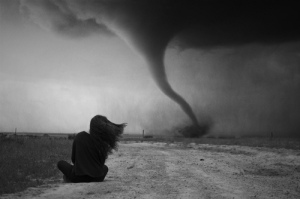












Recent Comments